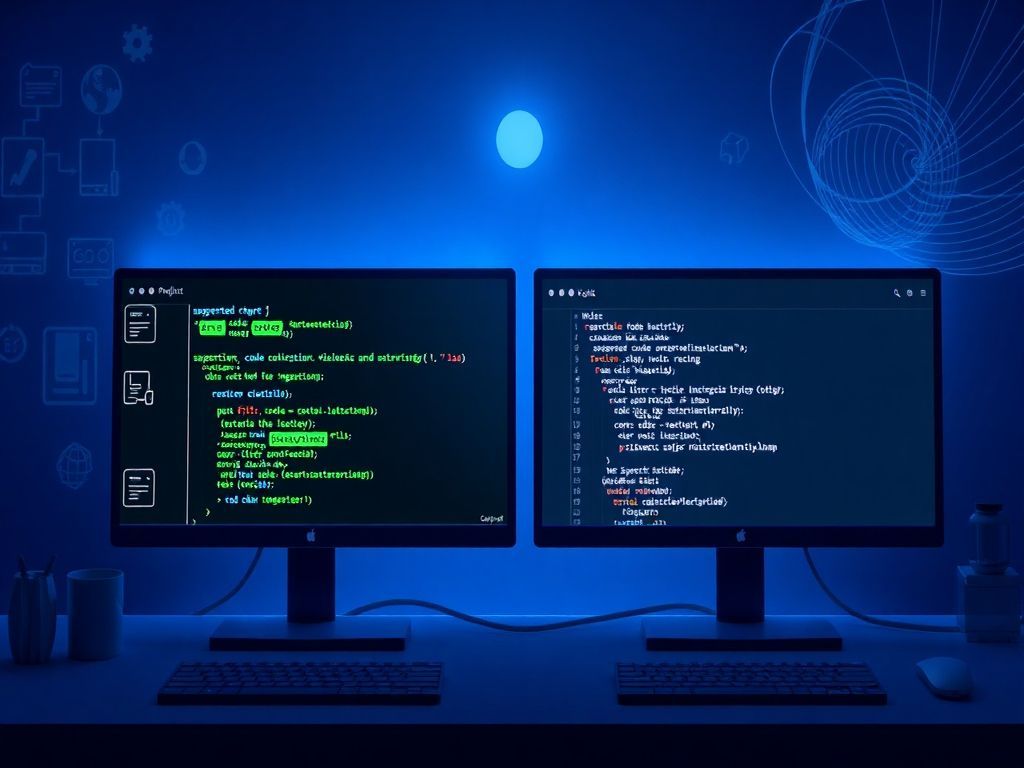C++ programming is a powerful tool for software development, but mastering its intricacies takes time and practice. This guide offers valuable tips and tricks to enhance your coding skills, especially when it comes to improving code efficiency and readability. Whether you’re a beginner or an experienced developer, these insights will help you write cleaner, more effective C++ code.
Chapter Title: Cải thiện mã nguồn C++
Code optimization is a critical aspect of *phát triển phần mềm* (software development), especially when working with C++. Efficient code not only executes faster but also consumes fewer resources, leading to improved application performance and scalability. Neglecting code optimization can result in sluggish applications, increased hardware costs, and a poor user experience. Therefore, understanding and implementing effective optimization techniques is essential for any C++ programmer. This chapter will explore five essential strategies for improving C++ code readability and efficiency, providing practical examples to illustrate each point.
1. **Minimize Object Creation:**
Creating and destroying objects frequently can be a performance bottleneck. Object creation involves allocating memory and calling constructors, while destruction involves calling destructors and deallocating memory. These operations can be time-consuming, especially for complex objects.
*Before:*
“`cpp
std::string concatenateStrings(const std::vector
std::string result;
for (const auto& str : strings) {
result = result + str; // Creates a temporary string object in each iteration
}
return result;
}
“`
*After:*
“`cpp
std::string concatenateStrings(const std::vector
std::string result;
for (const auto& str : strings) {
result += str; // Appends to the existing string object
}
return result;
}
“`
The improved version uses the `+=` operator, which appends the string to the existing `result` string, avoiding the creation of temporary string objects in each iteration. This seemingly small change can significantly improve performance, especially when dealing with a large number of strings. This is a crucial *tip lập trình C++*.
2. **Use Move Semantics:**
Move semantics, introduced in C++11, allow you to transfer ownership of resources from one object to another without copying them. This can significantly improve performance when dealing with large objects.
*Before:*
“`cpp
std::vector
std::vector
// Fill data with some values
return data; // Copying the entire vector
}
std::vector
“`
*After:*
“`cpp
std::vector
std::vector
// Fill data with some values
return data; // Moving the vector (no copy)
}
std::vector
“`
In the improved version, the compiler will automatically use move semantics to transfer the ownership of the `data` vector from the `processData` function to the `myData` variable. This avoids a costly copy operation, making the code much faster.
3. **Avoid Unnecessary Copying:**
Copying large objects can be expensive. Pass objects by reference or pointer instead of by value to avoid unnecessary copying.
*Before:*
“`cpp
void printData(std::vector
for (int value : data) {
std::cout << value << " ";
}
std::cout << std::endl;
}
std::vector
printData(myData);
“`
*After:*
“`cpp
void printData(const std::vector
for (int value : data) {
std::cout << value << " ";
}
std::cout << std::endl;
}
std::vector
printData(myData);
“`
By passing the `data` vector by constant reference, we avoid creating a copy of the vector when calling the `printData` function. This can significantly improve performance, especially when dealing with large vectors.
4. **Use Efficient Data Structures and Algorithms:**
Choosing the right data structure and algorithm can have a significant impact on performance. For example, using a `std::unordered_map` instead of a `std::map` can provide faster lookups if order is not important. Similarly, using an efficient sorting algorithm like quicksort or mergesort can be much faster than a naive sorting algorithm.
*Before:*
“`cpp
std::vector
std::vector
for (size_t i = 0; i < data.size(); ++i) {
for (size_t j = i + 1; j < data.size(); ++j) {
if (data[i] == data[j]) {
duplicates.push_back(data[i]);
}
}
}
return duplicates;
}
```
*After:*
```cpp
std::vector
std::unordered_set
std::vector
for (int value : data) {
if (seen.count(value)) {
duplicates.push_back(value);
} else {
seen.insert(value);
}
}
return duplicates;
}
“`
The improved version uses a `std::unordered_set` to keep track of the numbers that have already been seen. This allows us to find duplicates in O(n) time, whereas the original version takes O(n^2) time.
5. **Profile and Measure:**
The most effective way to optimize code is to profile it and identify the bottlenecks. Profiling tools can help you identify the parts of your code that are taking the most time to execute. Once you have identified the bottlenecks, you can focus your optimization efforts on those areas. Remember that premature optimization can be counterproductive. Always measure the performance of your code before and after making changes to ensure that your optimizations are actually improving performance. *Cải thiện mã nguồn* should always be driven by data.
By implementing these strategies, you can significantly improve the performance and readability of your C++ code. Remember that code optimization is an iterative process, and it often involves trade-offs between performance, readability, and maintainability.
Tips *Lập trình C++* will be further discussed in the next chapter.
Chapter Title: Tips Lập trình C++
Here are seven practical tips to elevate your C++ programming skills. These tips cover crucial areas like debugging, memory management, and leveraging the power of standard libraries to enhance your capabilities in *phát triển phần mềm*.
1. **Mastering Debugging Techniques**:
Debugging is an integral part of *cải thiện mã nguồn*. Effective debugging saves time and prevents frustration.
* Use a debugger: Familiarize yourself with tools like GDB (GNU Debugger) or IDE-integrated debuggers (e.g., Visual Studio Debugger, CLion Debugger). Learn to set breakpoints, step through code, inspect variables, and analyze call stacks.
* Employ logging: Strategically insert logging statements (e.g., using `std::cout` or a more sophisticated logging library) to track variable values and execution flow. However, ensure these logs are easily removable or configurable for production environments.
* Implement unit tests: Write unit tests using frameworks like Google Test to verify the correctness of individual functions or classes. Testing helps catch bugs early and ensures that changes don’t introduce regressions.
Example:
“`cpp
#include
#include
int divide(int a, int b) {
assert(b != 0); // Check for division by zero
return a / b;
}
int main() {
std::cout << divide(10, 2) << std::endl; // Output: 5
// std::cout << divide(10, 0) << std::endl; // This will trigger the assert
return 0;
}
```
2. **Smart Memory Management**:
C++ gives you fine-grained control over memory, but it also places the responsibility of managing it correctly on your shoulders.
* Use RAII (Resource Acquisition Is Initialization): Encapsulate resource management within classes. Resources are acquired in the constructor and released in the destructor, ensuring automatic cleanup regardless of exceptions.
* Prefer smart pointers: Use `std::unique_ptr`, `std::shared_ptr`, and `std::weak_ptr` to automate memory management and prevent memory leaks. `std::unique_ptr` provides exclusive ownership, while `std::shared_ptr` allows multiple owners.
* Avoid raw `new` and `delete`: Minimize the use of raw pointers and manual memory allocation. When you must use them, be extremely careful to pair every `new` with a corresponding `delete`.
Example:
```cpp
#include
#include
class MyClass {
public:
MyClass() { std::cout << "MyClass created" << std::endl; }
~MyClass() { std::cout << "MyClass destroyed" << std::endl; }
void doSomething() { std::cout << "Doing something" << std::endl; }
};
int main() {
std::unique_ptr
ptr->doSomething();
return 0; // MyClass is automatically destroyed when ptr goes out of scope
}
“`
3. **Leveraging the Standard Library**:
The C++ Standard Library provides a wealth of pre-built functionalities.
* Use STL containers: Utilize `std::vector`, `std::list`, `std::map`, `std::set`, etc., instead of manually implementing data structures. These containers are highly optimized and thoroughly tested.
* Employ algorithms: The `
* Understand iterators: Iterators are essential for traversing containers and working with algorithms. Master the different types of iterators (input, output, forward, bidirectional, random access) and their properties.
Example:
“`cpp
#include
#include
#include
int main() {
std::vector
std::sort(numbers.begin(), numbers.end());
for (int num : numbers) {
std::cout << num << " ";
}
std::cout << std::endl; // Output: 1 2 5 8 9
return 0;
}
```
4. **Embrace Code Reviews**:
Regular code reviews are essential for *cải thiện mã nguồn C++* and ensuring code quality. They help identify bugs, improve code style, and share knowledge among team members.
5. **Write Clean and Readable Code**:
Follow coding style guidelines (e.g., Google C++ Style Guide) to ensure consistency and readability. Use meaningful variable and function names, add comments to explain complex logic, and break down large functions into smaller, more manageable ones. This is crucial for *phát triển phần mềm* collaboratively.
6. **Optimize for Performance**:
Profile your code to identify performance bottlenecks. Use techniques like loop unrolling, inlining, and caching to improve performance. However, avoid premature optimization; focus on writing correct and readable code first.
7. **Stay Updated with C++ Standards**:
C++ is an evolving language. Keep up with the latest standards (C++11, C++14, C++17, C++20, etc.) to take advantage of new features and improvements. This will help you in *tip lập trình C++* and write more modern and efficient code.
These tips, when consistently applied, will significantly enhance your C++ programming skills and contribute to better *phát triển phần mềm*.
Next, we will explore the applications of C++ in modern software development.
Phát triển phần mềm với C++
C++ remains a powerful and versatile language in the landscape of modern software development. Its performance capabilities, combined with its ability to interact directly with hardware, make it a preferred choice for a wide range of applications. Understanding the application of C++ in modern software development, exploring real-world scenarios, and recognizing its benefits and challenges are crucial for any aspiring or experienced C++ developer. This chapter delves into these aspects, building upon the *Tip lập trình C++* discussed in the previous chapter, to provide a comprehensive view of C++ in practice.
One of the key areas where C++ excels is in game development. The demands of modern games, with their complex graphics, physics simulations, and real-time multiplayer interactions, require a language that can deliver high performance. Engines like Unreal Engine and Unity, although providing scripting languages, are built upon a C++ core. This allows developers to optimize critical sections of their game code for maximum efficiency. Furthermore, C++’s low-level access enables fine-grained control over hardware resources, which is essential for achieving smooth and responsive gameplay.
Another significant application area is system programming. Operating systems, device drivers, and embedded systems often rely on C++ for its ability to manage memory directly and interact with hardware components. The performance-critical nature of these applications necessitates the speed and control that C++ provides. For example, major operating systems like Windows and macOS have significant portions written in C++. Similarly, embedded systems found in automobiles, medical devices, and industrial equipment often use C++ for its real-time capabilities and resource efficiency. This is a direct result of focusing on *cải thiện mã nguồn* to ensure efficient execution.
High-performance computing (HPC) is another domain where C++ shines. Scientific simulations, financial modeling, and data analysis often require processing massive amounts of data and performing complex calculations. C++’s ability to be optimized for parallel processing and its support for libraries like MPI (Message Passing Interface) make it well-suited for these tasks. Researchers and engineers rely on C++ to develop applications that can leverage the power of supercomputers and distributed computing clusters.
However, using C++ is not without its challenges. Memory management, a powerful feature, can also be a source of bugs if not handled carefully. Manually allocating and deallocating memory can lead to memory leaks and dangling pointers, which can be difficult to debug. While modern C++ provides tools like smart pointers to mitigate these risks, developers still need a solid understanding of memory management principles.
Another challenge is the complexity of the language itself. C++ is a large and feature-rich language with a steep learning curve. Mastering all its nuances and best practices requires significant time and effort. This complexity can also lead to code that is difficult to understand and maintain, especially in large projects. Therefore, adhering to coding standards and employing techniques for *cải thiện mã nguồn* are crucial for ensuring code quality and maintainability.
Despite these challenges, the benefits of using C++ often outweigh the drawbacks, especially when performance and control are paramount. The language’s maturity, extensive ecosystem of libraries, and large community of developers make it a valuable tool for software development. Furthermore, modern C++ standards continue to evolve, introducing new features and improvements that address some of the historical challenges.
Here’s a summary of the benefits and challenges of using C++ in different project types:
- Benefits:
- High performance and speed
- Direct hardware access
- Mature language with a large ecosystem
- Suitable for performance-critical applications
- Challenges:
- Manual memory management
- Complex language with a steep learning curve
- Potential for memory leaks and dangling pointers
- Requires careful attention to coding standards
Ultimately, the decision to use C++ depends on the specific requirements of the project. If performance, control, and resource efficiency are critical, C++ remains a strong contender. By understanding its strengths and weaknesses, developers can leverage C++ effectively to build high-quality software. The *phát triển phần mềm* process can be significantly enhanced by understanding these nuances.
Conclusions
By implementing these strategies, you can significantly enhance your C++ coding skills and create more robust and efficient software. Remember to consistently practice and refine your approach to achieve mastery. Keep learning and exploring new techniques.











